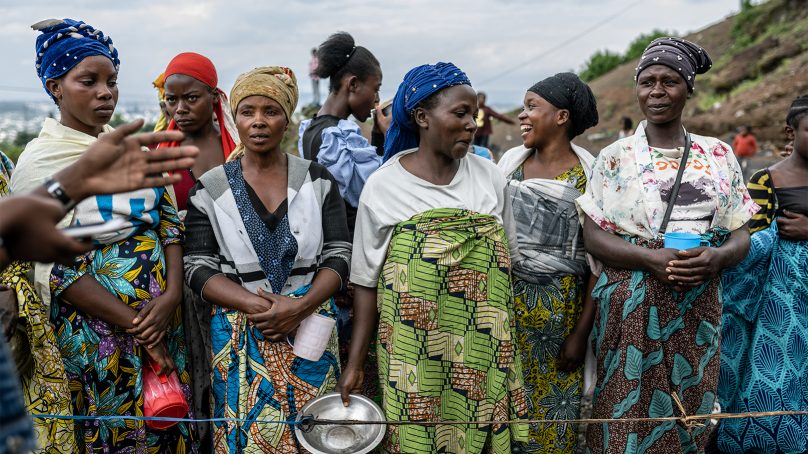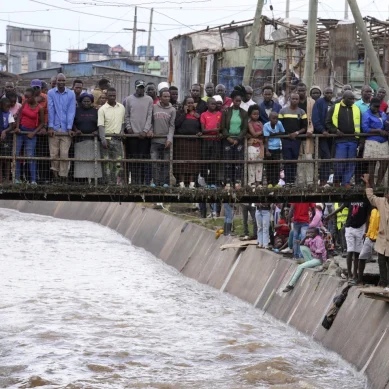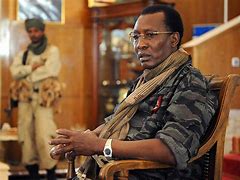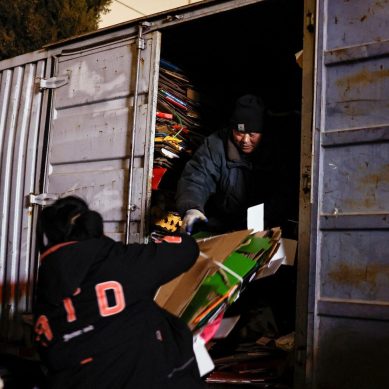
From a deadly volcanic eruption to the arrival of hundreds of thousands of displaced people escaping the tumultuous M23 conflict, the Democratic Republic of the Congo’s main eastern city of Goma has faced plenty of adversity over the past few years.
But throughout the turmoil, a collective of tireless local volunteer activists – artists, musicians, journalists, humanitarians, and commercial traders – has been on hand to help those most in need.
“The ideology of the collective is the care of Congolese in dramatic situations in which most people are waiting for an external solution,” Depaul Bakulu, a 28-year-old member of the group, which is called Goma Actif, said.
Goma has been a hub for international aid groups since civil war broke out two decades ago. But agencies spend too much on overheads and expatriate salaries, and react too slowly when crises emerge, said the activists.
“We don’t need to pay somebody $5,000 to show people how to wash their hands,” said Bakulu. “NGOs spend a lot of money on staff, while we volunteers focus on helping people in difficulty.”
Goma Actif first formed in 2020 during the Covid-19 pandemic, with members distributing masks and food for the elderly. Activists mobilised again in 2021 after the eruption of Mt Nyiragongo – a volatile volcano just north of Goma – left thousands homeless.
More recently, the group has been active at the Kanyaruchinya displacement camp, providing food to people who have fled the latest offensive by the M23 rebel group, which is backed by neighbouring Rwanda.
Last month, we asked Congolese photographer Arlette Bashizi to visit Kanyaruchinya – which is on the outskirts of Goma – to profile some of the activists and showcase the work they are doing.
The activists’ spoke about the importance of mutual aid in DRC, their frustrations with international humanitarian groups, and their ambition for Goma Actif to spread across the country. Their answers have been edited for length and clarity.
I am one of the founders and volunteers of the Goma Actif collective. It was in March 2020, and the idea came to my mind when Covid had invaded Europe, after China. Given the impotence of the response at the start of the crisis and for fear it would be worse in Africa, I had the idea of talking about it with friends.
We discussed how we could launch an awareness campaign on respecting control measures. We held the first meeting in March 2020 and there were five of us. We didn’t even have a name, but we found one later on.
During Covid, we raised awareness, distributed masks and assisted seniors in the distribution of food and masks. This assistance to the elderly is one of the actions of which I am personally most proud. All of the actions we do represent contributions as volunteers, and as friends and acquaintances.
After the pandemic crisis, we tried to think about how to keep the collective alive, so we kept a small, restricted, strategic group. When the Nyiragongo volcano eruption took place in 2021, some volunteers who ended up in Sake (25 kilometres from Goma] and Rutshuru [80 kilometres from Goma] started not only raising awareness but also taking care of children, breastfeeding women, and also the elderly by preparing porridge for them. Apart from our own members’ contributions, we also raised funds and this enabled us to assist the victims.
[During the current M23 crisis], we have been at the Kanyaruchinya displaced persons camp… feeding children, breastfeeding women and the elderly at least once a day with porridge and bread. It requires a lot of resources, which is one of the challenges we face… but we use what we have, and when it is over we try to contribute and mobilise a little more money to resume activities.
Goma Actif is not an NGO or an association. Goma Actif is a collective that spontaneously organises itself to face a challenge facing the city and especially our communities. When there is this need, we mobilise and do what we have to do as volunteers.
Two women sit around a large pot. One of them stirs the contents of it with a wooden stick. In the back-drop we see individuals standing by.
Our way of communicating is different [from NGOs] because we are from Goma. We know the language that our community understands, but the NGOs have languages with a lot of paragraphs about rules that don’t resonate here. We have been offered several times to register as a legal NGO but we don’t do it.
Regardless of who gives us money, we do not want to communicate their identity, in order to stay as independent as possible. The objective is not to mobilise millions, but to help the community we know to respond to problems because we live them.
We do not have an office or formal administration. Often when there is a problem, we mobilise funds. We give the funds to a volunteer to handle and, with the support of a team, we directly address the problems and the needs without having to carry out administrative processes. We don’t have time for that. We prefer using our time to go to the field to take action.
- The New Humanitarian report











